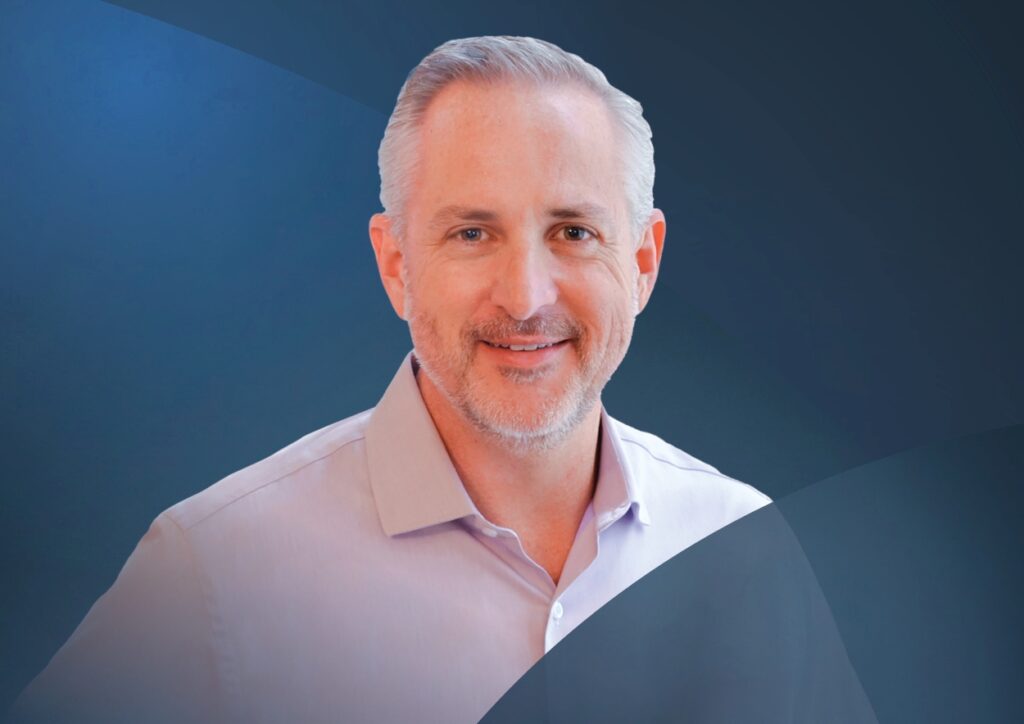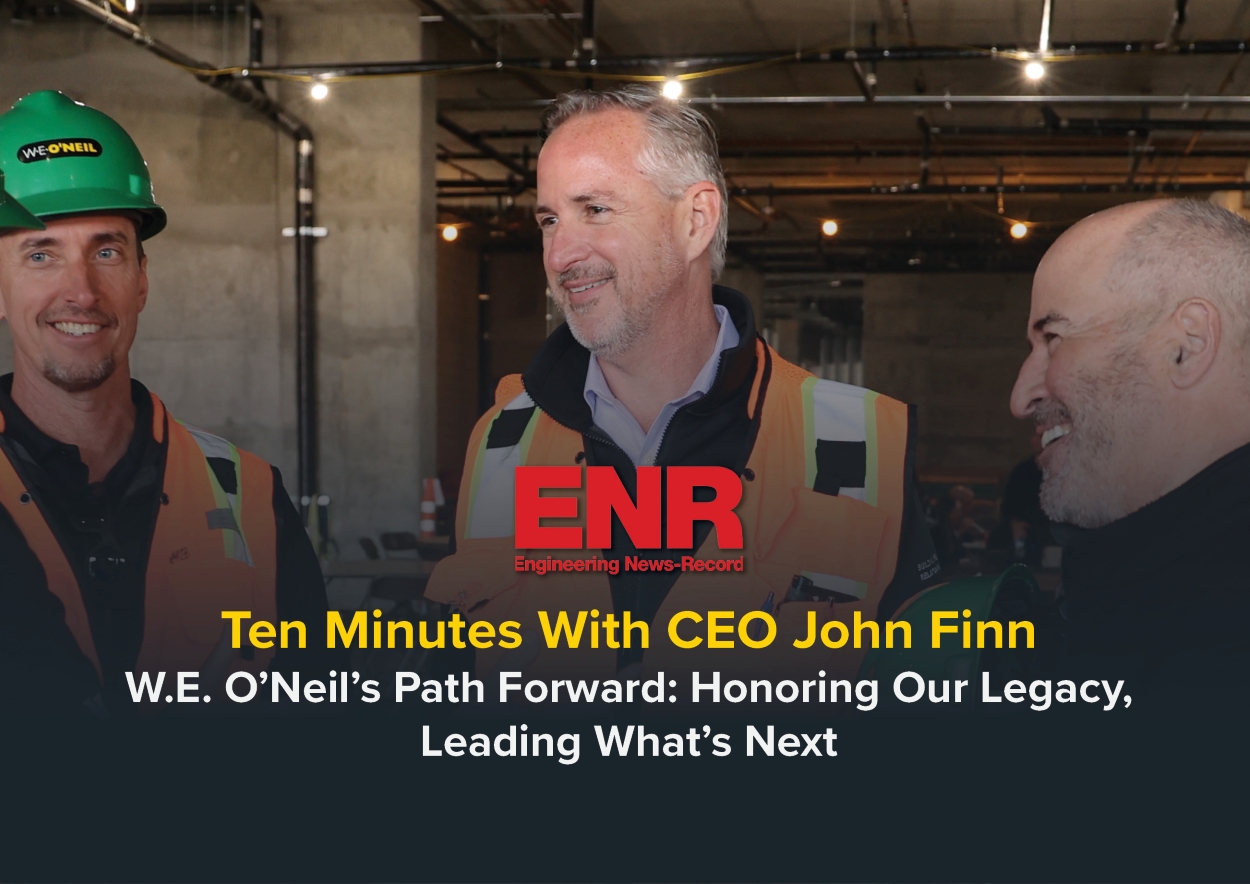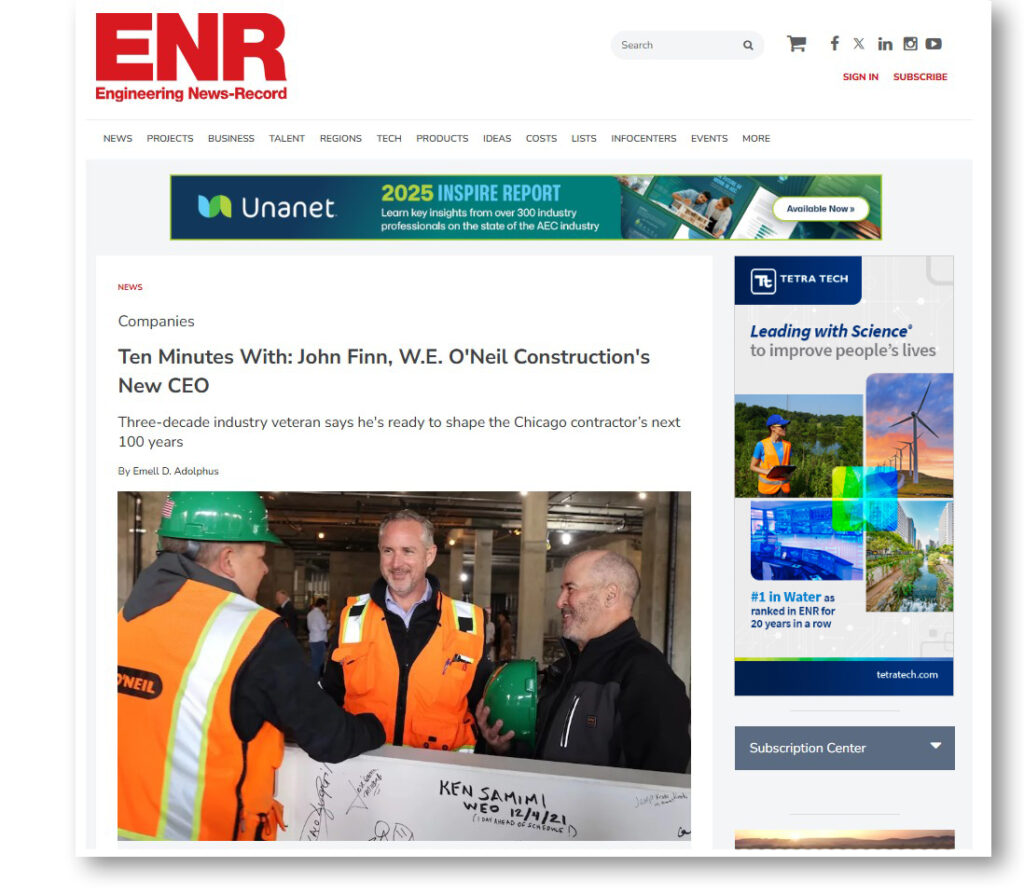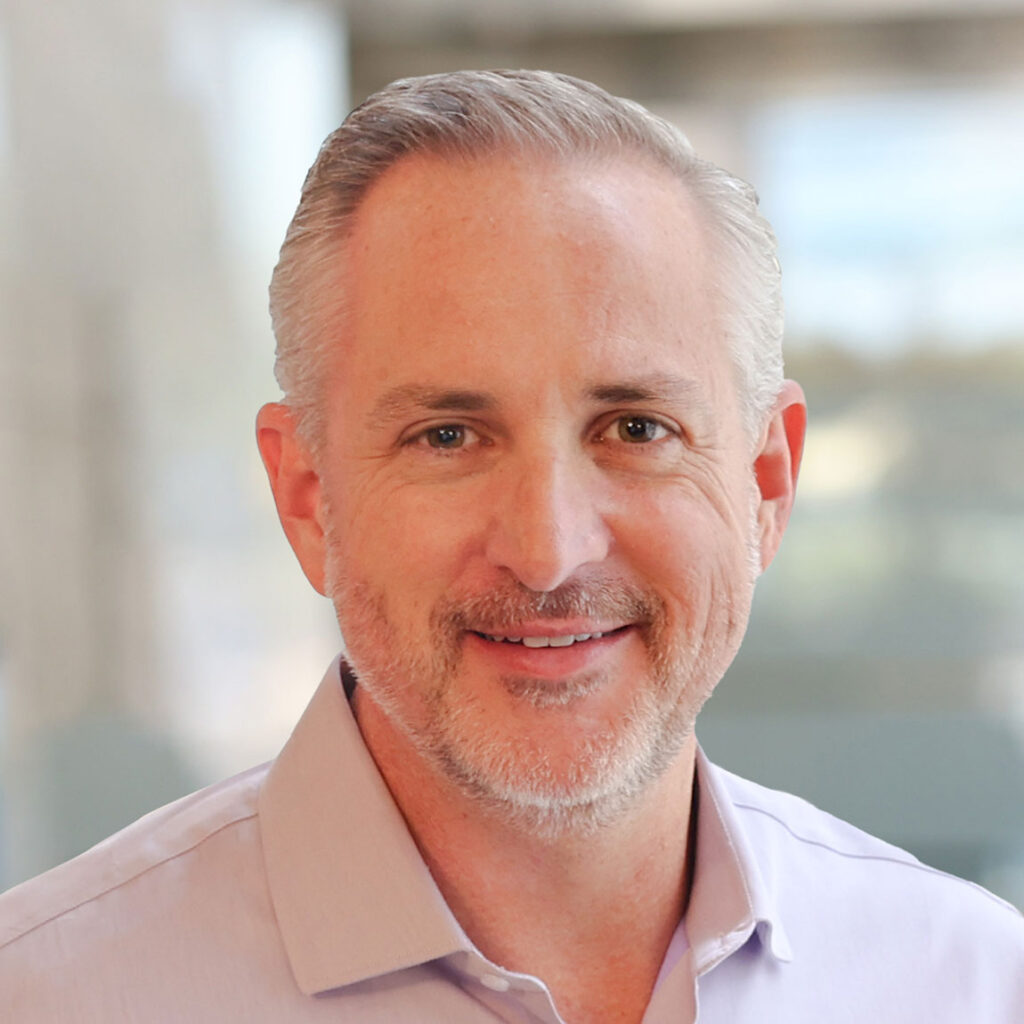
John Finn Named CEO as W.E. O’Neil Marks 100 Years
Company News
John Finn sat down with ENR's Senior Editor to discuss building growth for our employee-owners and preserving our family roots.


Leading the Next 100 Years: John Finn on Relationships and Data-Driven Success
Senior Editor at Engineering News-Record (ENR National) Emell Derra Adolphus sat down for an exclusive Q&A with John Finn, who became CEO in March as we marked our centennial.
From ENR’s intro: “Promoted from chief operating officer and president of its California region, the 35-year industry veteran says his ‘biggest priority’ is to apply its successful strategy to challenges facing all of its U.S. locations. The firm ranks at No. 107 on ENR’s Top 400 Contractors list, reporting just over $1.2 billion in revenue last year. Finn shares his approach to building further growth for the employee-owned company and to preserving W.E. O’Neil Construction’s family roots.”

CEO John Finn
Culture of Connection
A culture of connection—both inside and outside the company—has always been core to our success. “When we were founded in 1925 by William E. O’Neil, one of his mantras was that this is a relationship business,” John shared. “Not just with clients and partners, but with our employees.”
It’s a legacy established by the O’Neil Family and passed down through generations. John also shared how his leadership has been influenced by Bill O’Neil, our former CEO and Chairman: “Bill was a very grounded people person,” John shared. “He knew our people are the reason we’ve succeeded for decades. One of his legacies was ensuring that employees had a real stake in the company.”
Since 2020, W.E. O’Neil has been a 100% employee-owned firm, and John sees that as a key driver for the future.
When we were founded in 1925 by William E. O’Neil, one of his mantras was that this is a relationship business. Not just with clients and partners, but with our employees.
Long-Term Connections with Trade Partners
With operations across six states and projects spanning a wide range of market sectors, John also spoke to one of the most persistent challenges facing the construction industry today: labor availability. He emphasized the importance of strong, long-standing relationships with our trade partners to ensure project success.
“It’s those person-to-person connections that give them the confidence to be fully invested in the project.” John shared.
These long-term partnerships have been instrumental in the successful delivery of projects across the U.S., particularly in regions where labor constraints are tightening. One notable example is our Arizona market, where large-scale developments such as data centers and semiconductor facilities have significantly increased pressure on the local labor pool—a trend being felt across all W.E. O’Neil markets.
The Next Chapter
Looking ahead, John is focused on honoring the company’s core values while leveraging data, strengthening connections, and developing the next generation of leadership.
“We have access to data now that helps us make informed decisions—about risk, forecasting, workforce availability, and scheduling,” he said. “But ultimately, our success depends on living our values. If we deviate from that, we lose who we are.”
John has been focusing on strengthening and deepening relationships by visiting our offices, engaging with employee-owners, and sharing his vision for the “Next 100 Years.”
For John, the next chapter is about legacy and longevity: “Marking our centennial in business this year, my mantra is developing the team to build this company to last for another 100 years. That starts with strengthening connections, deepening relationships, and creating meaningful opportunities for our younger employee-owners—because they are the future, and we owe it to them to get it right.”
Marking our centennial in business this year, my mantra is developing the team to build this company to last for another 100 years. That starts with strengthening connections, deepening relationships, and creating meaningful opportunities for our younger employee-owners—because they are the future, and we owe it to them to get it right.